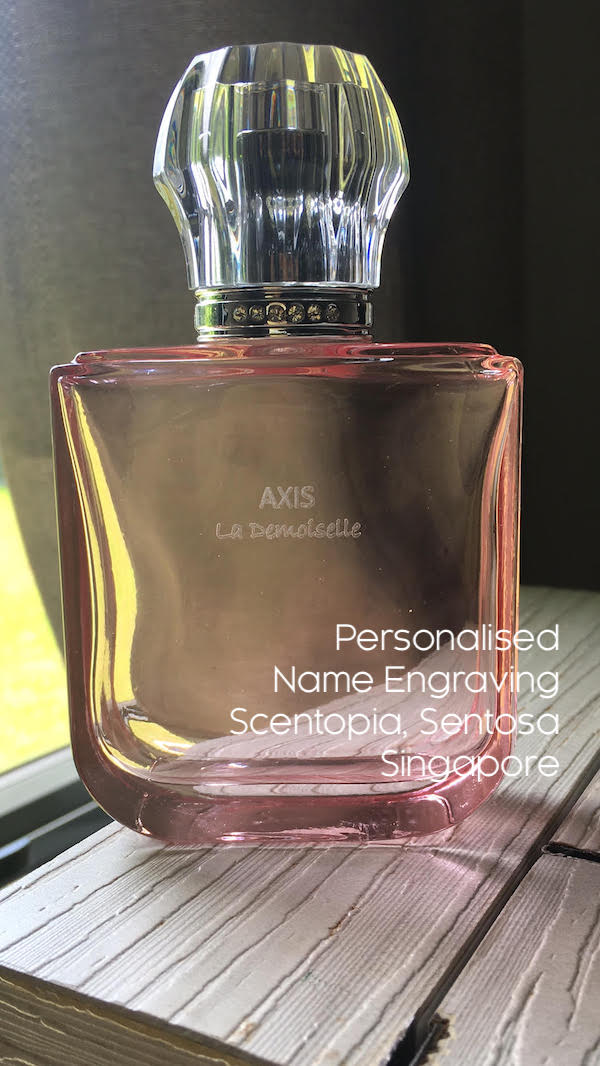Fragrance Oil vs Essential Oil: Understanding the Difference
Fragrance oils and essential oils are both popular aromatic substances used in various products, from cosmetics and perfumes to candles and cleaning supplies. They play a crucial role in creating appealing scents that can evoke emotions, memories, and even influence mood. Despite their shared purpose of providing fragrance, these two types of oils are distinct in their composition, sourcing, properties, and applications. Let's delve into the differences between fragrance oils and essential oils.
Unraveling the Aromatic Dichotomy
The world of scents is a captivating realm that stimulates our senses, triggers memories, and sets the ambiance for diverse products, from cosmetics and perfumes to candles and cleaning supplies. This olfactory journey is guided by two prominent players: fragrance oils and essential oils. These aromatic oils, while united in their goal of bestowing captivating fragrances, are inherently disparate in terms of their origin, composition, characteristics, and utilization. This exploration delves into the nuances that differentiate fragrance oils from essential oils.
Shared Purpose, Divergent Natures:
At the heart of fragrant creations, both fragrance oils and essential oils are employed to bestow alluring scents that engage our senses. Their aromatic contributions transcend the mere physical world, delving into the realm of emotions, memories, and even the modulation of mood. It's their common goal of delivering fragrance that often leads to confusion, yet beneath the surface lies a distinct demarcation between these two categories of oils.
Fragrance oils and essential oils are both popular aromatic substances used in various products, from cosmetics and perfumes to candles and cleaning supplies. They play a crucial role in creating appealing scents that can evoke emotions, memories, and even influence mood. Despite their shared purpose of providing fragrance, these two types of oils are distinct in their composition, sourcing, properties, and applications. Let's delve into the differences between fragrance oils and essential oils.
Unraveling the Aromatic Dichotomy
The world of scents is a captivating realm that stimulates our senses, triggers memories, and sets the ambiance for diverse products, from cosmetics and perfumes to candles and cleaning supplies. This olfactory journey is guided by two prominent players: fragrance oils and essential oils. These aromatic oils, while united in their goal of bestowing captivating fragrances, are inherently disparate in terms of their origin, composition, characteristics, and utilization. This exploration delves into the nuances that differentiate fragrance oils from essential oils.
Shared Purpose, Divergent Natures:
At the heart of fragrant creations, both fragrance oils and essential oils are employed to bestow alluring scents that engage our senses. Their aromatic contributions transcend the mere physical world, delving into the realm of emotions, memories, and even the modulation of mood. It's their common goal of delivering fragrance that often leads to confusion, yet beneath the surface lies a distinct demarcation between these two categories of oils.
Natural vs Synthetic Scents: Making the Choice
Scent and Sensation:
Fragrance Oils: The primary role of fragrance oils is to infuse products with captivating scents. These oils find their application in an assortment of products ranging from candles and perfumes to soaps and lotions. The synthetic nature of fragrance oils facilitates the creation of stable and consistent fragrances that linger for extended periods. However, it's crucial to note that fragrance oils lack the therapeutic properties associated with essential oils, making them more suitable for scent-driven purposes rather than holistic well-being.
Essential Oils: Beyond their fragrant allure, essential oils introduce the realm of aromatherapy. Each essential oil boasts a distinct profile that offers potential physiological and psychological benefits. Aromatherapy explores the impact of inhaling or topically applying essential oils on various aspects of health and well-being. For instance, the calming scent of lavender essential oil is renowned for its relaxation-inducing effects, while the antiseptic properties of tea tree oil have found utility in natural cleaning products. The therapeutic potential of essential oils enhances their value beyond mere fragrance, empowering them to contribute to holistic self-care.
Fragrance Oils: The primary role of fragrance oils is to infuse products with captivating scents. These oils find their application in an assortment of products ranging from candles and perfumes to soaps and lotions. The synthetic nature of fragrance oils facilitates the creation of stable and consistent fragrances that linger for extended periods. However, it's crucial to note that fragrance oils lack the therapeutic properties associated with essential oils, making them more suitable for scent-driven purposes rather than holistic well-being.
Essential Oils: Beyond their fragrant allure, essential oils introduce the realm of aromatherapy. Each essential oil boasts a distinct profile that offers potential physiological and psychological benefits. Aromatherapy explores the impact of inhaling or topically applying essential oils on various aspects of health and well-being. For instance, the calming scent of lavender essential oil is renowned for its relaxation-inducing effects, while the antiseptic properties of tea tree oil have found utility in natural cleaning products. The therapeutic potential of essential oils enhances their value beyond mere fragrance, empowering them to contribute to holistic self-care.
The Fragrance Industry: Insights and Comparisons
Naturalness and Authenticity:
Fragrance Oils: While fragrance oils exhibit a diverse array of scents, their synthetic composition might deviate from the natural world. This divergence could raise concerns for individuals seeking purely natural products or those sensitive to synthetic compounds. The trade-off for versatility and stability in fragrance might come at the cost of authenticity for those prioritizing naturalness.
Essential Oils: Inherently grounded in nature, essential oils align with the yearnings of those who cherish authenticity. Yet, not all essential oils are immune to adulteration or dilution. Acquiring high-quality essential oils necessitates careful scrutiny of sourcing and production methods to ensure purity. The natural complexity of essential oils, rooted in their botanical origins, appeals to those seeking unadulterated fragrances.
Fragrance Oils: While fragrance oils exhibit a diverse array of scents, their synthetic composition might deviate from the natural world. This divergence could raise concerns for individuals seeking purely natural products or those sensitive to synthetic compounds. The trade-off for versatility and stability in fragrance might come at the cost of authenticity for those prioritizing naturalness.
Essential Oils: Inherently grounded in nature, essential oils align with the yearnings of those who cherish authenticity. Yet, not all essential oils are immune to adulteration or dilution. Acquiring high-quality essential oils necessitates careful scrutiny of sourcing and production methods to ensure purity. The natural complexity of essential oils, rooted in their botanical origins, appeals to those seeking unadulterated fragrances.
Benefits of Essential Oils
Composition and Source:
Fragrance Oil: Fragrance oils are synthetic or man-made aromatic compounds that are carefully formulated to mimic specific scents. These compounds are created through a combination of natural and synthetic ingredients, such as aroma chemicals, isolates, and various other compounds. Fragrance oils are meticulously designed by perfumers and chemists to produce consistent and long-lasting scents. Due to their synthetic nature, fragrance oils offer a wide range of fragrances that might not be achievable using natural sources alone.
Essential Oil: Essential oils, on the other hand, are naturally occurring oils extracted from plant materials using methods like steam distillation, cold pressing, or solvent extraction. They are highly concentrated extracts that capture the aromatic compounds present in plants. Essential oils are often considered the "essence" of the plant, as they contain its characteristic scent and other properties. Because they are derived directly from plants, essential oils can vary in scent and composition based on factors such as the plant species, growing conditions, and extraction methods used
Fragrance Oil: Fragrance oils are synthetic or man-made aromatic compounds that are carefully formulated to mimic specific scents. These compounds are created through a combination of natural and synthetic ingredients, such as aroma chemicals, isolates, and various other compounds. Fragrance oils are meticulously designed by perfumers and chemists to produce consistent and long-lasting scents. Due to their synthetic nature, fragrance oils offer a wide range of fragrances that might not be achievable using natural sources alone.
Essential Oil: Essential oils, on the other hand, are naturally occurring oils extracted from plant materials using methods like steam distillation, cold pressing, or solvent extraction. They are highly concentrated extracts that capture the aromatic compounds present in plants. Essential oils are often considered the "essence" of the plant, as they contain its characteristic scent and other properties. Because they are derived directly from plants, essential oils can vary in scent and composition based on factors such as the plant species, growing conditions, and extraction methods used
Aromatherapy: Harnessing the Power of Scents
Scent and Aromatherapy:
Fragrance Oil: Fragrance oils are primarily used to impart pleasant scents to various products. They are commonly employed in the production of candles, perfumes, soaps, lotions, and air fresheners. While they offer a wide range of scents and can be less expensive than essential oils, fragrance oils lack the therapeutic properties associated with natural essential oils.
Essential Oil: Essential oils are not only valued for their aromatic qualities but also for their potential therapeutic benefits. Different essential oils are believed to have various physiological and psychological effects. This field of study, known as aromatherapy, explores how inhaling or applying essential oils may impact mood, stress levels, sleep quality, and even certain health conditions. For example, lavender essential oil is often used for relaxation and stress relief, while tea tree oil is known for its antibacterial properties.
Fragrance Oil: Fragrance oils are primarily used to impart pleasant scents to various products. They are commonly employed in the production of candles, perfumes, soaps, lotions, and air fresheners. While they offer a wide range of scents and can be less expensive than essential oils, fragrance oils lack the therapeutic properties associated with natural essential oils.
Essential Oil: Essential oils are not only valued for their aromatic qualities but also for their potential therapeutic benefits. Different essential oils are believed to have various physiological and psychological effects. This field of study, known as aromatherapy, explores how inhaling or applying essential oils may impact mood, stress levels, sleep quality, and even certain health conditions. For example, lavender essential oil is often used for relaxation and stress relief, while tea tree oil is known for its antibacterial properties.
Comparing Scent Production Methods
Purity and Naturalness:
Fragrance Oil: Fragrance oils are synthetically created, which means they can be formulated to achieve specific scents consistently. However, their synthetic nature can also mean that they might contain artificial compounds that do not occur naturally in the plant world. This can be a concern for individuals seeking natural products or those with sensitivities to certain chemicals.
Essential Oil: Essential oils are regarded as more natural since they are derived directly from plant sources. However, it's essential to note that not all essential oils are created equal. Some essential oils on the market might be diluted or adulterated with carrier oils or synthetic additives. High-quality essential oils are sourced from reputable producers who adhere to strict quality control standards to ensure purity and authenticity.
Fragrance Oil: Fragrance oils are synthetically created, which means they can be formulated to achieve specific scents consistently. However, their synthetic nature can also mean that they might contain artificial compounds that do not occur naturally in the plant world. This can be a concern for individuals seeking natural products or those with sensitivities to certain chemicals.
Essential Oil: Essential oils are regarded as more natural since they are derived directly from plant sources. However, it's essential to note that not all essential oils are created equal. Some essential oils on the market might be diluted or adulterated with carrier oils or synthetic additives. High-quality essential oils are sourced from reputable producers who adhere to strict quality control standards to ensure purity and authenticity.
Decoding Natural Scents vs Synthetic Fragrances
Endurance and Permanence:
Fragrance Oils: Fragrance oils boast remarkable stability and longevity, particularly in products like candles and perfumes. The synthetic components contribute to the prolonged presence of their scents, making them a favored choice for items that require sustained aromatic impact.
Essential Oils: In comparison, essential oils are more volatile and can dissipate relatively quickly due to their natural origins. As a result, products infused with essential oils might exhibit a shorter shelf life. Nevertheless, the transience is offset by the layered, intricate fragrances that emerge from the natural constituents of essential oils.
Fragrance Oils: Fragrance oils boast remarkable stability and longevity, particularly in products like candles and perfumes. The synthetic components contribute to the prolonged presence of their scents, making them a favored choice for items that require sustained aromatic impact.
Essential Oils: In comparison, essential oils are more volatile and can dissipate relatively quickly due to their natural origins. As a result, products infused with essential oils might exhibit a shorter shelf life. Nevertheless, the transience is offset by the layered, intricate fragrances that emerge from the natural constituents of essential oils.
Choosing the Right Aromatic Products
Longevity and Stability:
Fragrance Oil: Fragrance oils generally have better stability and longevity than essential oils when used in products like candles, perfumes, and lotions. Their synthetic composition allows them to maintain their scent over a more extended period, making them ideal for products where a consistent fragrance is desired.
Essential Oil: Essential oils are more volatile and can evaporate relatively quickly. This means that products made with essential oils might have a shorter shelf life compared to those made with fragrance oils. However, the natural complexity of essential oils can offer a more nuanced and layered fragrance profile, which some individuals prefer.
Fragrance Oil: Fragrance oils generally have better stability and longevity than essential oils when used in products like candles, perfumes, and lotions. Their synthetic composition allows them to maintain their scent over a more extended period, making them ideal for products where a consistent fragrance is desired.
Essential Oil: Essential oils are more volatile and can evaporate relatively quickly. This means that products made with essential oils might have a shorter shelf life compared to those made with fragrance oils. However, the natural complexity of essential oils can offer a more nuanced and layered fragrance profile, which some individuals prefer.
Essential Oils for Relaxation and Wellness
Fragrance oils and essential oils serve different purposes in the world of fragrance and aroma. Fragrance oils are synthetic compounds that offer a wide range of scents and better longevity but lack the therapeutic properties associated with essential oils. Essential oils are natural extracts with distinct scents and potential therapeutic benefits, making them popular choices in aromatherapy and natural products. When choosing between fragrance oils and essential oils, it's important to consider factors such as your intended use, preferences, and whether you prioritize naturalness or specific fragrances.
In the realm of scents, fragrance oils and essential oils are two divergent protagonists, each bearing their distinctive characteristics and contributions. While fragrance oils excel in delivering consistent, enduring fragrances, essential oils venture beyond aromas into the domain of holistic well-being. Whether one opts for the versatility of fragrance oils or the authenticity of essential oils hinges on their intended purpose, values, and yearnings for olfactory journeys.
In the realm of scents, fragrance oils and essential oils are two divergent protagonists, each bearing their distinctive characteristics and contributions. While fragrance oils excel in delivering consistent, enduring fragrances, essential oils venture beyond aromas into the domain of holistic well-being. Whether one opts for the versatility of fragrance oils or the authenticity of essential oils hinges on their intended purpose, values, and yearnings for olfactory journeys.
Join Scentopia, Sentosa's latest tourist attraction wonderful orchid scent crafting, fragrance tour, bridal shower or corporate team building which includes perfume making onsite and offsite, beach activities and more. We also serve primary school learning journey, secondary students and pupil on industrial excursions. Know more about our orchids perfume bar or therapeutic orchid scents and other wellness aromas. Conatct Perfume workshop or book a scent crafting session here.







